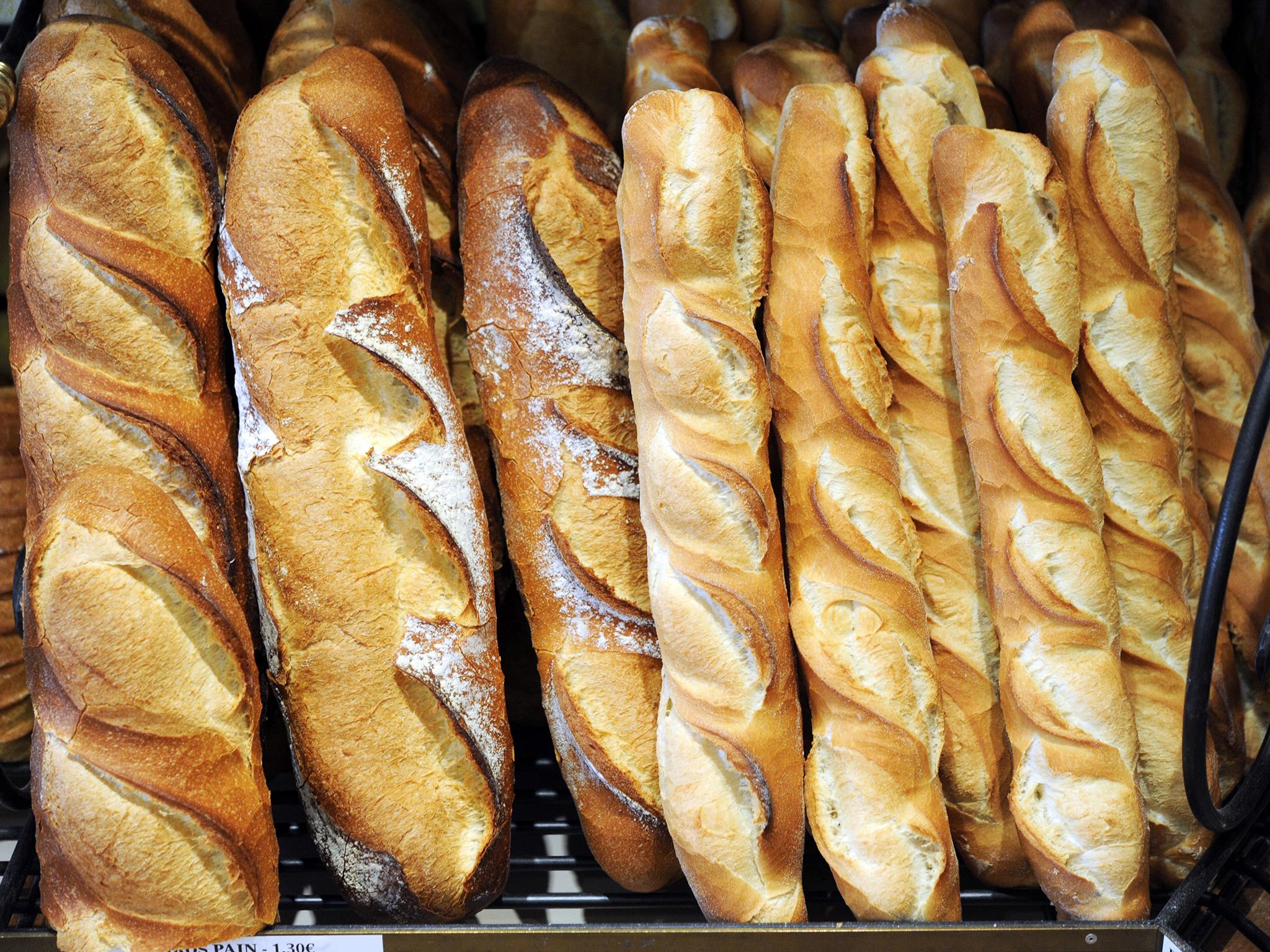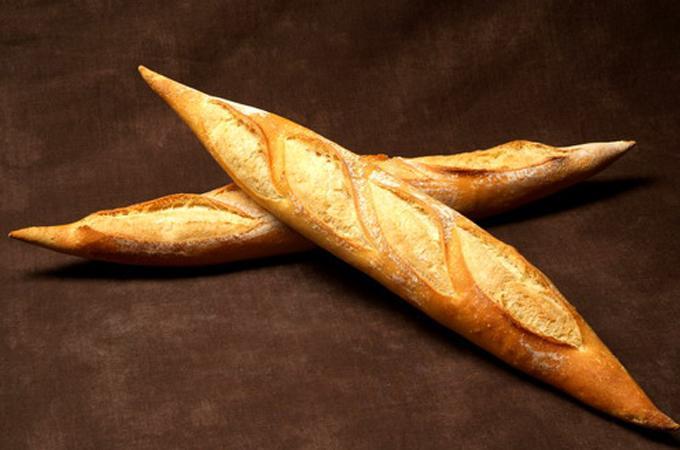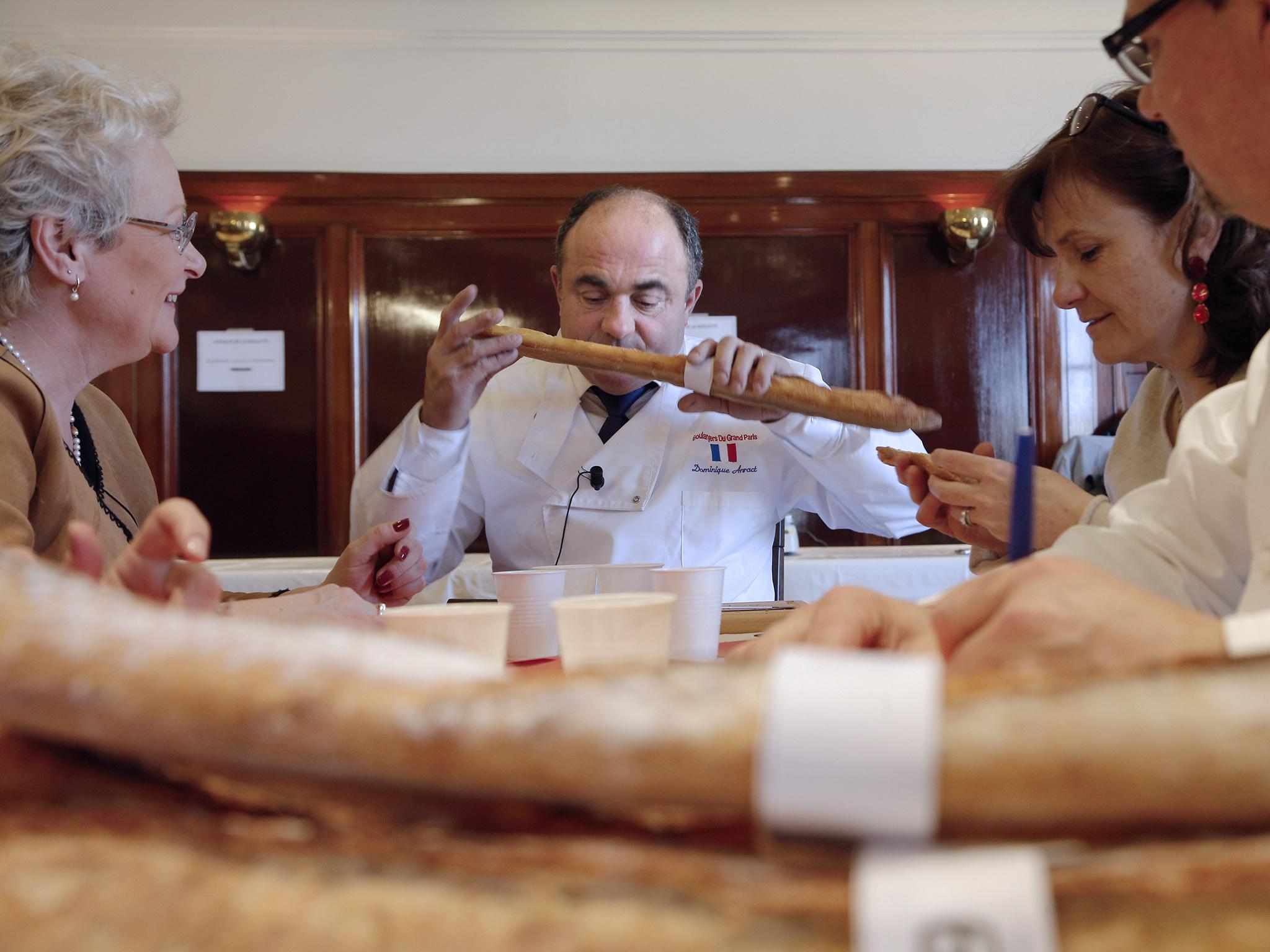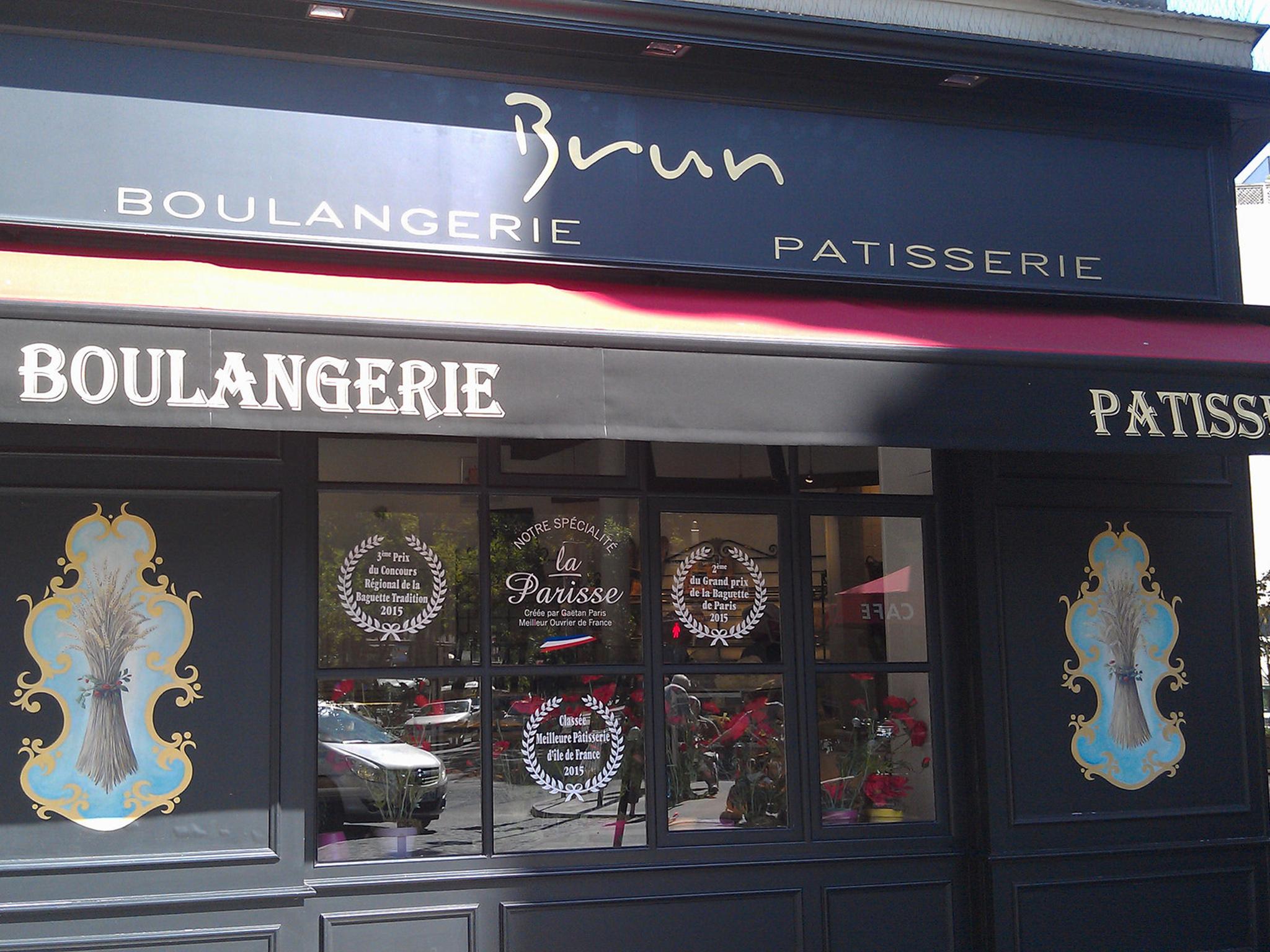When will baguettes gain the Unesco status they deserve?
Synonymous with France, the baguette is the symbol of its food. So why, asks Philip Sweeney, is it still waiting for Unesco status?

Your support helps us to tell the story
From reproductive rights to climate change to Big Tech, The Independent is on the ground when the story is developing. Whether it's investigating the financials of Elon Musk's pro-Trump PAC or producing our latest documentary, 'The A Word', which shines a light on the American women fighting for reproductive rights, we know how important it is to parse out the facts from the messaging.
At such a critical moment in US history, we need reporters on the ground. Your donation allows us to keep sending journalists to speak to both sides of the story.
The Independent is trusted by Americans across the entire political spectrum. And unlike many other quality news outlets, we choose not to lock Americans out of our reporting and analysis with paywalls. We believe quality journalism should be available to everyone, paid for by those who can afford it.
Your support makes all the difference.The British press has a long established formula for dealing with certain news stories from France and the affair of Emmanuel Macron and the Unesco baguette bid falls within it. First point: get a Sacre Bleu! or a Zut Alors! in there somewhere. OK, done. Next thing is to invoke some devious Gallic motivation. Absolutely pas de probleme.
This is clearly a tactic to divert attention from Catherine Deneuve’s embarrassing refusal to kowtow to bien pensant Hollywood. And, of course, as the Italians have been quick to point out, the result of a fit of pique at the recent accession of the pizza to the pantheon of intangible Unesco world heritage.
However… the baguette is certainly an admirable and emblematic product, worthy of the support the Unesco listing is supposed to encourage. It’s arguably already on the Unesco list, via the 2010 Unesco inclusion of “the French gastronomic meal” in its entirety.
One of the glories of which was always the plentiful, freshly bought and guillotined baguette kept topped up on the table until after the cheese. The baguette may also qualify on the grounds of needing Unesco support, being arguably a threatened species.
Among a number of baguette conversations this week, the food writer Xanthe Clay was particularly scathing, insisting that proper old-style crisp baguettes were quite simply gone, and various French advertising campaigns in recent years have attempted to halt a supposed decline.
It’s true that even in France the abomination which is a chewy baguette is nowadays all too common, and that the old boulangeries baking two or three times a day and refusing ascorbic acid and other industrial additives are getting rarer. In their place the unstoppable advance of the hypermarkets or the confusing range of mass produced or concession-made baguettes, with cunningly homespun brand names like Banette, the predecessor, or La Reine des Pres, one of the latest. Many more will be on view next month at Europain, Paris, the must-not-miss trade show for the industrial bread geek.

But Dominique Anract, head of the Confederation Nationale de la Boulangerie-Patisserie, the man who got Macron on board the Unesco campaign, points out that there are still 33,000 independent boulangers across France, albeit down almost half from the 1950s, and this is still a network on a scale unique in the world. Plus 12 million daily customers many of whom still pop out to get a freshly baked baguette for every meal, and would regard using the morning’s stale bread in the evening as sacrilege.
Paris still supports a fine stock of such shops, a good example being the Boulangerie Brun on the rue de Tolbiac, 2017 winner of the city’s annual Best Baguette Prize. Proprietor Sami Bouattour gets up at 2.30am five days a week to prepare anything between 700 and 1,200 baguettes a day, plus an undisclosed number for the Elysee Palace, one of the privileges of the prize. One assumes the president sticks with the in-laws for his mignardises though: Brigitte Macron is the daughter of the Trogneux family of Amiens, renowned macaron makers for three generations.

The Boulangerie Brun sells a lot more than baguettes: a whole range of which was another factor in the decline of the baguette. I remember years ago researching what I regarded as the ambrosia of breads only to find all the chic Parisians were turning to great rough country loaves from new celebrity bakers like Lionel Poilane and the old white baguette was just for trailer trash like me.
In Britain, the baguette has had a different life cycle. Until around the 1990s, only clumsy Anglicisations, quaintly referred to French sticks, existed here. Then imported flours and professionals began to supply somewhat more authentic versions. But just as the Poilane vogue had eclipsed the traditional baguette in Parisian fashion 20 years earlier, the UK market soon became flooded with an increasingly sophisticated range of alternatives.

The baguette is still a staple of British supermarkets but only one product among a range of several dozen brown and flavoured breads, sourdoughs, focaccias and ciabattas, naans and pittas. And the situation in the new UK artisan bakeries is no better.
Laura Hart, one of Bristol’s most highly rated independent bakers, has the same length queues as the Boulangerie Brun in Paris, but customers rarely emerge with baguette tucked under arm. “We have baked baguettes from time to time” says Pete Young of the bakery, “but they don’t go that well. They’re not as versatile to use as our big sourdough loaves, they don’t last as long, and they’re harder to make: a lot more work per quantity of dough, so it’s hard to keep the price economical.”
Quite apart from its interest to baking enthusiasts, the French baguette affaire constitutes a salutary wake up call for the UK. What have we got listed as world food heritage? Not so much as a cheese and onion crisp, it would appear: Britain is one of very few states which hasn’t ratified the relevant Unesco convention.
An understandable economy, but one we should maybe now re-think. What if we used some of the spare cash from Brexit to sign on, grease a few palms in Unescoland, and get our intangible grub up there on the world heritage website? Question is, what to nominate first. Yorkshire pudding’s too doughy so soon after pizza and baguette. The deep fried Mars Bar would be perfect, but sugar’s out of favour. Best bet must be a vegan chicken korma, nice and shiny for Instagram, future proof, and oozing with zeitgeist. So you know what you can do with your baguette, M’sieur Macron, and I don’t mean make it into a sandwich au jambon!
Join our commenting forum
Join thought-provoking conversations, follow other Independent readers and see their replies
0Comments